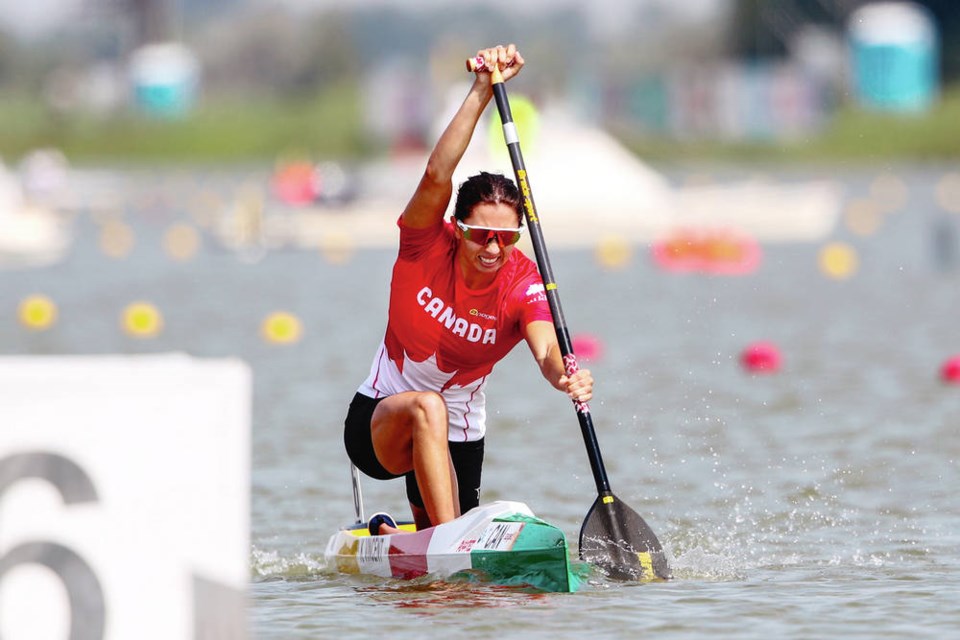The Island is not the U.S. Sunshine State in terms of weather. But it’s not Saskatchewan, either. Canoe Kayak Canada is conducting its annual winter camp, usually held in Florida, in a practical bubble with dorms and dining hall at St. John’s Academy in Shawnigan Lake for its more than 40 athletes, coaches and training staff.
Canoe Kayak Canada is among the national sport organizations preparing amid a pandemic for the delayed Tokyo 2020 Plus One Olympics next summer. With the Canada-U.S. border closed, Florida was not an option this year for the camp. But after what athletes have endured in 2020, a little bit of Island rain isn’t about to deter them.
“Shawnigan Lake is awesome,” said Canadian sprint canoeist Katie Vincent, who overcame an agonizing case of shingles to win bronze in the women’s individual C-1 500 metres and gold in the C-2 500-metres with partner Laurence Vincent-Lapointe at the 2018 world championships.
“We layer up as needed here and get the work done. The lake is across the street from our accommodations and meals. There is no traffic and distraction. It keeps the stress low. We can be out and warming up on the lake in 10 minutes.”
Despite being delayed, the prize remains the same.
“There are still Olympic medals available and there will be races next summer to win them,” said Vincent.
“The way I look at it, I’ve been given another year, another opportunity, to get better,” added the 24-year-old, who grew up down the road from the local canoe club in Mississauga, Ont.
Not that it has been flat water all the way. The pandemic was only part of it. Vincent’s C-2 partner Laurence Vincent-Lapointe was provisionally suspended in 2019, but then reinstated in January of this year by the International Canoe Federation, after Vincent-Lapointe’s positive steroid test was ruled to have been caused by third-party contamination.
“That was tough emotionally, and stressful, but made me stronger and more resilient,” said Vincent, who was looking at her dreams of C-2 Olympic gold possibly evaporating without Vincent-Lapointe.
“It has actually made this year seem a lot easier.”
Not many athletes can claim that about 2020.
Meanwhile, Rowing Canada is centralized at Elk Lake (moving to Quamichan Lake in North Cowichan post-Tokyo Olympics) and also uses Shawnigan Lake for training. There is a perception that all elite Canadian international athletes know each other. But they are so siloed and focused on their own sports that it’s not the case.
“It’s cool to see the rowers on the water. I’ve never seen them before,” said Vincent.
But there is a commonality.
“We’re all working toward the same goal,” added Vincent, a former world junior champion.
Both the IOC and Tokyo organizers are vowing the Games will proceed next summer, regardless of what form they take. With the vaccines coming, that seems all but a certainty now.
“I believe we will be on the start line in Tokyo,” said Vincent.
“Look at all the other sports that have been successful in bubbles. I trust our decision makers to make the right decision.”
High-performance athletes who were already training in B.C. and identified by Canadian Sports Institute-Pacific are excluded from the sport-related restrictions announced Nov. 19, and running through Dec. 7. The Canoe Kayak Canada training camp opened in early November and runs through next week. Regardless, training, practices and scrimmages are allowed for all sports organizations.
cdheensaw@timescolonist.com



